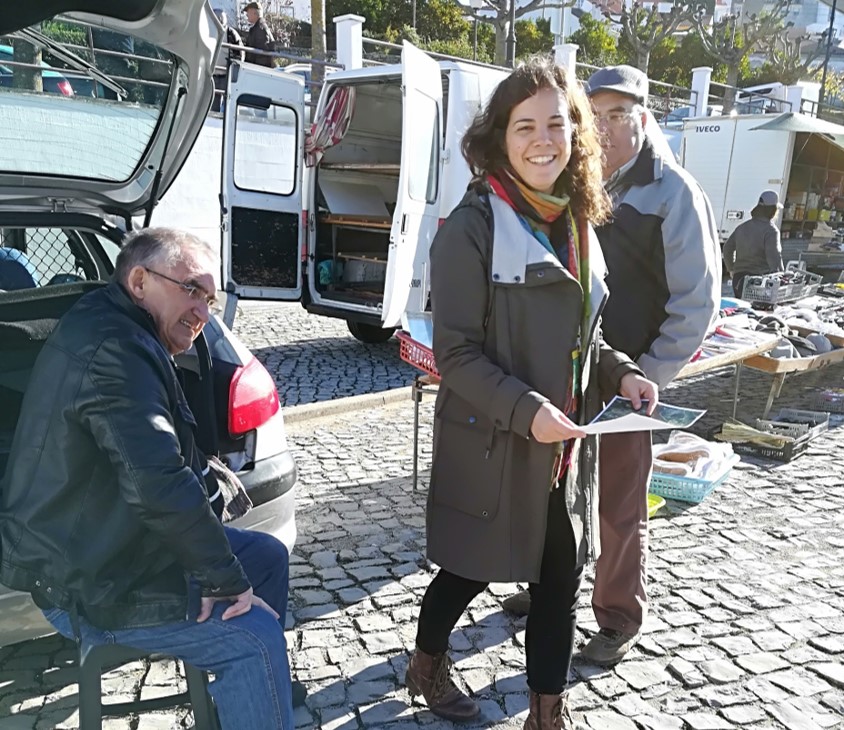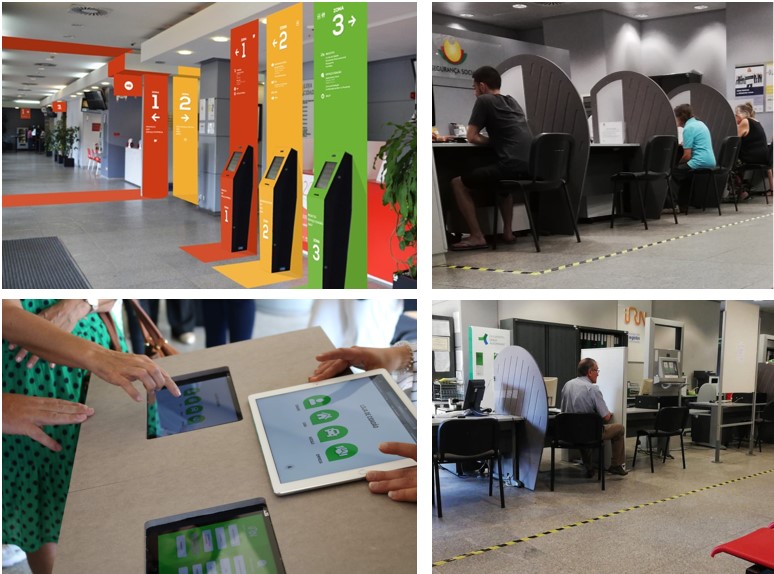Resilient Region 2.0 Project
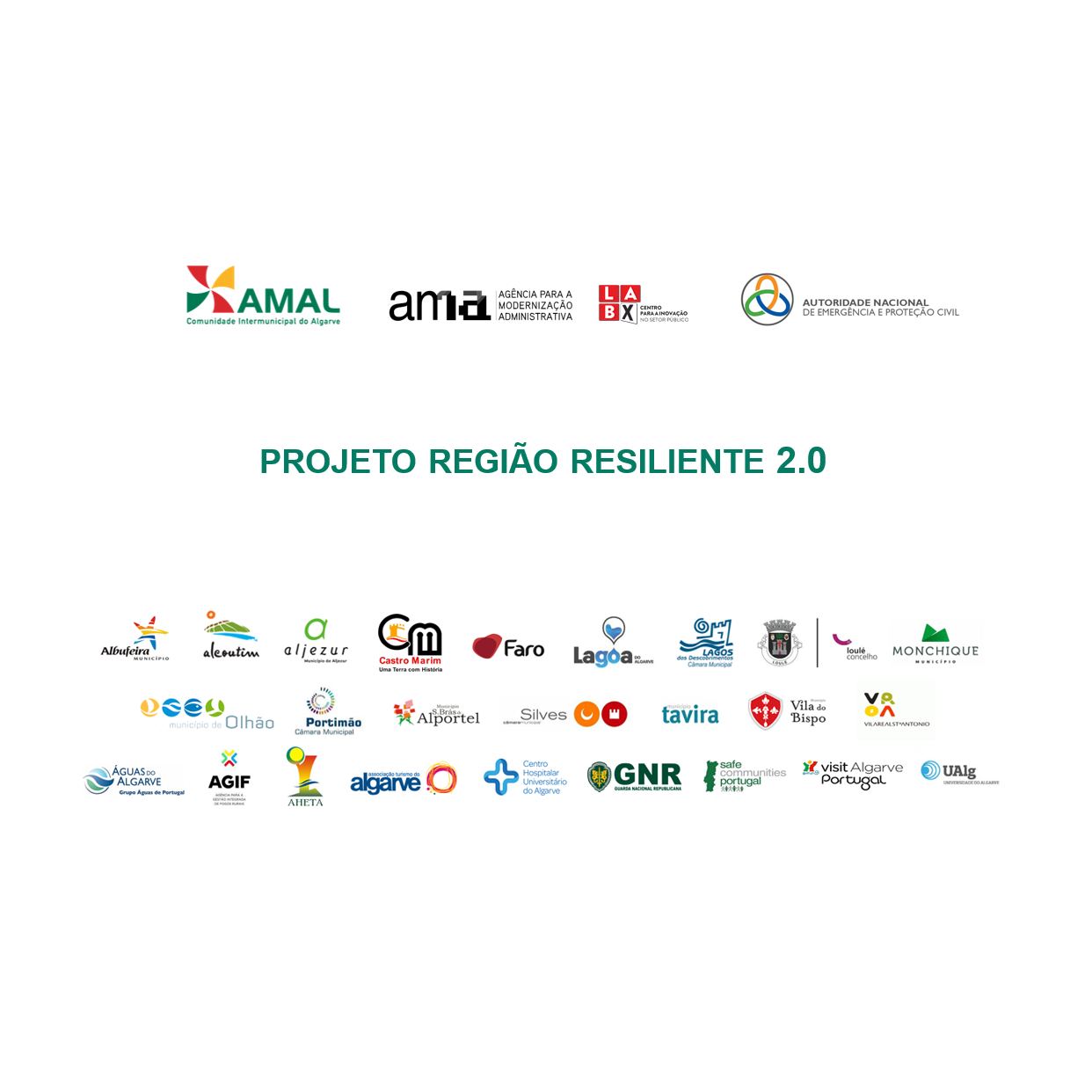
OBJECTIVES
The Resilient Region 2.0 Project arose from a partnership established between the Agency for Administrative Modernization (AMA), through LabX – Centre for the Public Sector Innovation, the Algarve Intermunicipal Community (AMAL) and the National Authority for Emergency and Civil Protection (ANEPC) with the purpose of building a governance solution that would allow a more effective integration of disaster risk reduction measures in local policies and a greater adaptation of the territory to climate change, thus enhancing greater resilience of communities.
LabX ensured the capacity building of the project team (from AMAL and ANEPC) through the transfer of skills and practical knowledge in the use of innovative tools using LabX methodology to address the challenge and ensuring methodological support during the implementation of the project.
BENEFICIARIES
Citizens, public and private entities of the Algarve region.
APPROACH
The Mentoring of LabX in the Resilient Region 2.0 Project began in October 2021 with the development of a work plan in four stages – Capacity Building, Research, Design and Experimentation – and the adoption of skills and attitudes oriented towards a collaborative process, involving civil society organizations, universities, companies and other public and private sector entities, to ensure a commitment and a broad response in the Algarve region.
This resulted in a proposal for a governance solution, which was called the Algarve Regional Platform for Disaster Risk Reduction (PRRRC). The following 26 entities have joined the Platform as founding members:
- 16 Algarve municipalities
- Algarve Intermunicipal Community
- National Authority for Emergency and Civil Protection
- Agency for Integrated Management of Rural Fires
- Águas do Algarve
- Algarve Tourism Association
- Association of Hotels and Tourist Enterprises of the Algarve
- Algarve University Hospital Centre
- GNR – National Republican Guard
- Safe Communities Portugal
- University of Algarve.
MAIN RESULTS
– The capacity building of the team project was fundamental for the success of the project, as it guaranteed them the specific skills and knowledge needed to respond to a complex challenge in an innovative and creative way, making use of adequate tools and methodologies;
– The creation of an extended team to support the core team (team project) proved to be very important to bring knowledge, critical mass and accelerated the commitment and involvement of the municipalities in the various phases of the project;
– The engagement of the relevant actors from the begin of the project, during the research and design phases, which enhanced their participation and facilitated their adhesion to PRRRC;
– The constitution/implementation of PRRRC, the first at a national level, with the adhesion of 26 entities, public and private;
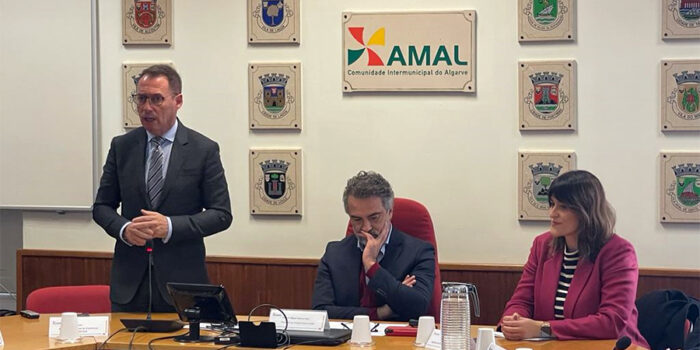
– The operationalisation of the platform with the choice of the coordinating entity (in an annual rotating model) through the establishment of two working groups to densify and develop the Platform’s support structure.
The Resilient Region 2.0 Project resulted in a report that portrays in detail the various phases of the project. As the operationalization of the project resulted in the creation of the PRRRC, AMAL, as the project leader, gave an interview for the Smart Cities online magazine, which addresses the project and the benefits of PRRRC for the Region (access here in portuguese only).
REPORT
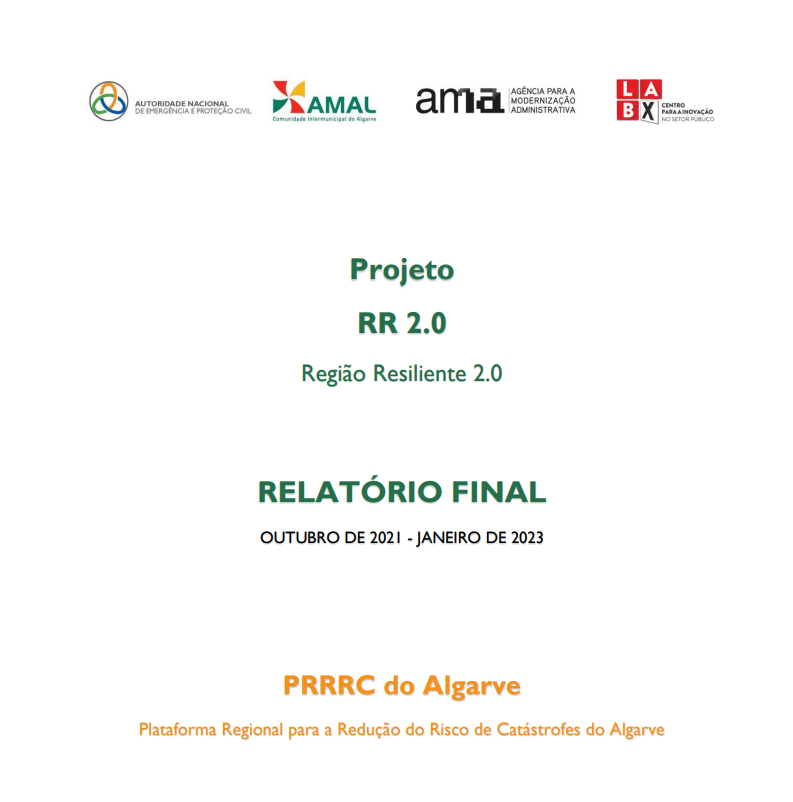
Resilient Region 2.0 Project
This project resulted in a report that portrays in detail the various phases of the project, which can be accessed here.
See the document in its Portuguese version